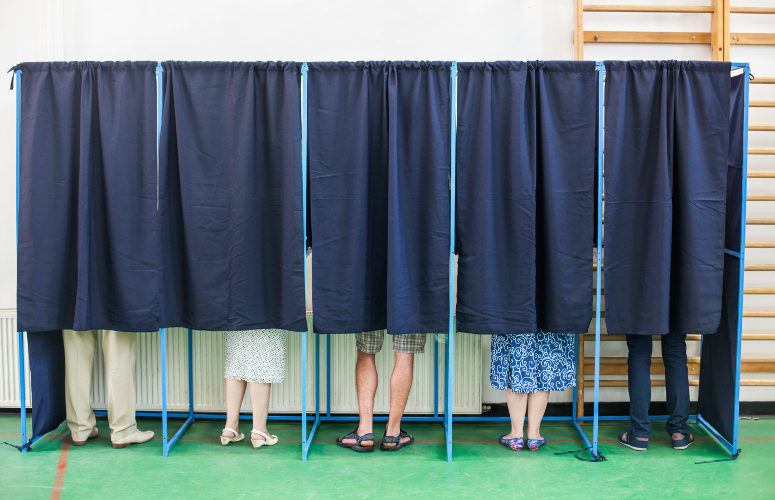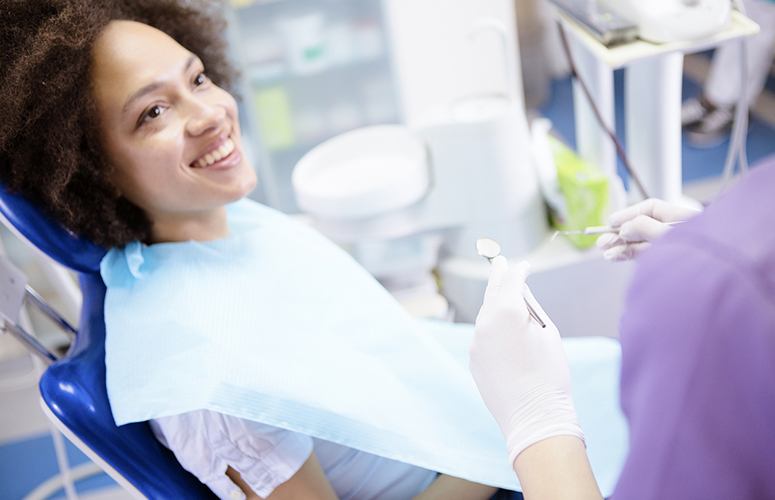
Monmouth Poll: Election Meddling Concerns
Democrats suspect Russia, Republicans point finger at the Democrats
On Aug 11, 2020American voters are simultaneously confident and concerned about the integrity of the upcoming election. While many Democrats are worried about Russian meddling, Republicans think the Democratic Party will be responsible for any election interference. The Monmouth University Poll also finds that Joe Biden currently holds a 10-point lead over Donald Trump in the presidential race.
Biden is currently supported by 51% of registered voters and Trump by 41%. The remaining vote is scattered across third-party candidates, including Libertarian Jo Jorgensen (2%), the Green Party’s Howie Hawkins (1%), and other candidates (1%), while 4% of voters are undecided. This is similar to the Democrat’s late June lead of 52% to 39% with third-party candidates named and 53% to 41% without third-party candidates named. Biden’s edge stood at 52% to 41% in early June, 50% to 41% in May, 48% to 44% in April, and 48% to 45% in March.
Slightly more voters say they are certain about their support for Biden (39%) than say the same about Trump (35%). This is similar to the “firm support” gap in late June, when it was 40% Biden to 34% Trump. Fully half (50%) of registered voters continue to say they are not at all likely to support the incumbent (identical 50% in late June), while 40% say the same about the challenger (39% in late June).
“Trump has stopped his slide in the poll, but Biden maintains a lead among all registered voters nationally,” said Patrick Murray, director of the independent Monmouth University Polling Institute.
Voter opinion of Biden stands at 42% favorable and 47% unfavorable. It was 44%–44% in late June and 42%–49% in early June. Trump has a more negative 40% favorable and 54% unfavorable opinion. It was 38%–55% in late June and 38%–57% in early June. Combining these ratings finds that 39% have a favorable opinion of Biden only, 37% have a favorable opinion of Trump only, and 3% have a favorable opinion of both. Just over 1 in 5 registered voters (22%), though, do not have a favorable opinion of either candidate. Biden is the preferred presidential choice among this group by 55% to 17%.
Turning to how the upcoming election will be administered, just over 6 in 10 voters say they are confident – 21% very and 42% somewhat – that the November election will be conducted fairly and accurately. This includes majorities of Democrats (68%), Republicans (65%), and independents (57%) alike. Another 24% are not too confident and 12% are not at all confident in the how the fall election will be conducted.
At the same time most voters feel at least somewhat confident in how the election will be run, nearly 3 in 4 say they are concerned about the possibility that election meddling could undermine the integrity of the results (37% very concerned and 35% somewhat concerned). Concern over potential election meddling includes large majorities of Democrats (78%), Republicans (66%), and independents (70%). Overall, 39% of American voters express both confidence and concern in how the upcoming election will be run. Democrats (47%) are more likely than Republicans (36%) and independents (33%) to feel this way.
While majorities of all partisan groups are concerned about potential election meddling, they differ over the expected causes. A sizable number of Democratic voters who are worried about possible election meddling believe a foreign power will be involved, with 40% pointing the finger at Russia while 9% name China and 4% name another country. Far fewer Republicans, though, expect election interference from outside our borders (12% China, 6% Russia, and 3% another country).
A significant number of Democrats also expect that Trump (31%) along with the Republican Party (16%) will play a role in possible election meddling. Government election officials (5%), as well as the Post Office (2%), are also mentioned by concerned Democrats as potential culprits. A majority (55%) of GOP voters, on the other hand, believe the Democratic Party would be the most likely perpetrator of any election interference. Another possible cause named by Republicans is vote-by-mail (11%). Also, 4% of Republicans name Biden, 2% name Trump, 2% name the Republican Party, and 2% cite the media as potential sources of election meddling.
“The U.S. intelligence community has been unambiguous in calling out Russia, and to a lesser extent China, for both past and planned election interference. However, the Trump camp has been fairly successful in deflecting their supporters away from these actors and instead focusing on Democratic efforts to expand voting access,” said Murray.
A majority (58%) of American voters think it is a good idea to make it easier to cast ballots by mail this year. Another 37% say this is a bad idea. Nearly all Democrats (90%) say expanding vote-by-mail is a good idea but few Republicans (20%) agree. Six in ten (60%) independents say it is a good idea. Nearly half of all voters report they are either very (32%) or somewhat (17%) likely to cast their own general election ballot by mail. This includes 72% of Democrats and 48% of independents, but just 22% of Republicans.
The Monmouth University Poll finds that 64% of voters feel optimistic about the 2020 presidential election. Voter optimism was somewhat lower (55%) in August 2016, just after both parties’ nominating conventions. The shift in the current numbers is due mainly to Republicans – 81% feel optimistic now versus 61% in August 2016. The 4-year trend on this question is basically unchanged for Democrats (66% now and 67% in 2016) and independents (48% now and 40% in 2016).
Currently, 40% of American voters feel more enthusiastic about this election compared to past elections, 17% are less enthusiastic, and 43% say they feel about the same level of enthusiasm. There was far less enthusiasm four years ago when 21% felt more enthusiastic, 46% less enthusiastic, and 31% about the same. While Republicans are largely responsible for the increase in voter optimism compared to four years ago, voter enthusiasm has gone up the most among Democrats (47% feel more enthusiastic than usual now versus 20% in 2016). There have been smaller increases in feeling more enthusiastic among Republicans (42% now compared to 32% in 2016) and independents (31% now compared to 15% in 2016).
In terms of the candidates being able to put the country on the road to recovery from the coronavirus pandemic, just under half express confidence in Trump – 30% very confident and 15% somewhat confident – while just over half feel less confident – 9% not too confident and 45% not at all confident. Biden does slightly better at 16% very confident and 32% somewhat confident versus 12% not too confident and 36% not at all confident.
“This is the type of result we have been seeing on issue questions throughout the campaign. Voters tend to have strongly held views of Trump, both positive and negative. Biden does slightly better in the net ratings overall. It’s just that voters don’t have as firm a sense of the challenger,” said Murray.
The Monmouth University Poll was conducted by telephone from August 6 to 10, 2020 with 868 adults in the United States. The results in this release are based on 785 registered voters and have a +/- 3.5 percentage point sampling margin of error. The poll was conducted by the Monmouth University Polling Institute in West Long Branch.
To access more business news, visit NJB News Now.
Related Articles:





